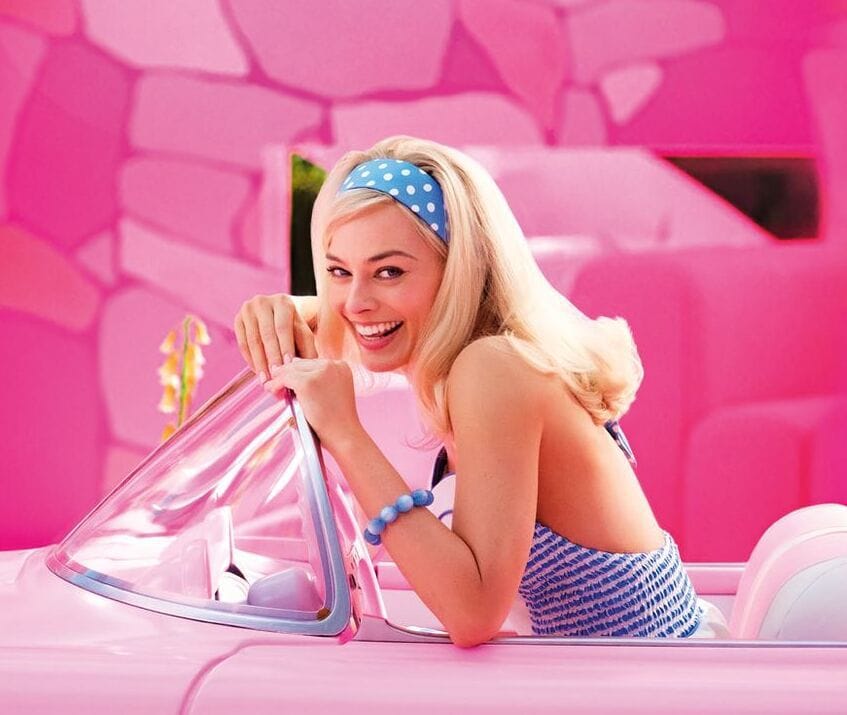Feminist Masterpiece or Giant Infomercial?

By Melina Tavakoli Moghaddam, BA Politics and International Politics
“Aspiring female directors will not only struggle in the industry to earn back any form of respect, but it is also questionable whether their career prospects are possible within the era of global boiling that Gerwig does not pay mind to”
Though Greta Gerwig may have broken the Hollywood glass ceiling by becoming the first billionaire female director, one can assert that she did not leave much room for future generations of women to follow in her footsteps.
As Mattel’s behemoth of an advert, Barbie satirises the basic antagonisms women face in their daily lives to illustrate how ‘it is literally impossible to be a woman.’ These words, directly extracted from America Ferrera’s ‘light-bulb moment’ monologue and thus, embellished in a liberal feminist fashion, are supposed to serve as a catharsis or rather, as an attempt to unionise the female sex amidst our shared struggle. We can resist the beauty standards that Barbie herself set if we just put our minds to it, right? It’s not like there are only five lines shared between the only two ‘curvy’ Barbies in the film. Mattel’s history with curvier dolls must also not be forgotten; it’s not like the release of new body types in 2016 was due to their profit crash in 2015. Nevertheless, we can all be beautiful as long as we attack the patriarchy together, and Barbie is only selling us products such as her Bikini Serum because she too, is a victim. She too experiences hyperpigmentation, regardless of her plastic exterior.
Beyond the shallow feminism that Gerwig ensures to instil within the movie, our director forgets to nod to the reality behind the making of the dolls. The dedicatory montage of the female cast and crew may have been a tear-jerker, but what’s more, the predominantly female labour crew in Mattel factories have no time to shed tears due to their working conditions. Dirty water, dirty dishes for their food, hair and cockroaches in meals are merely the start of what female workers have to endure alongside verbal abuse from male line managers and barely a liveable wage without overtime. So I pose the question, can the film even be artificially feminist when Barbie’s very existence stems from exploited women? At least Robbie Brenner, the President of Mattel films, agrees that Gerwig’s film is ‘not a feminist movie’. So much for hiding the fact that it is an advertisement!
When exploring what a capitalist ploy Barbie is, it is imperative to also refer to its impact on the climate crisis. The focus-grouped inclusion seeks to speak to every woman that has lived ever (with the spotlight still on stereotypical Barbie) yet does not acknowledge how this would equate to a higher number of doll purchases. Never mind the 25% increase in sales in the USA during July and August, imagine how each individual 182-gram Barbie doll will result in 660 grams of carbon emissions. Seems that the world shortage of pink paint was not enough for Gerwig, she had to boil the planet at twice its current severity.
I guess we ought to commend Gerwig for sparking debate about misogyny at the very least. Women were finally presented with the opportunity to discuss their experiences further than they already had. The government dictated upon our bodies first, and now men with no real worldview argue that the latter is not ‘Kenough.’ Forget misogyny, Barbie is an assault on men, according to Piers Morgan. So, thanks for fighting for the ‘I’m Just Ken’ dance sequence Gerwig, and thank you for enlightening the world on the forces of patriarchy which offered us a career-best Ryan Gosling adjacent to discourses on how attractive Margot Robbie is.
After dishing out an introductory piece of buzzwords prevalent in the study of feminism amalgamated with 2015 Tumblr quotations, any affiliated Oscar nomination should read as ‘best infomercial of the year.’ Aspiring female directors will not only struggle in the industry to earn back any form of respect, but it is also questionable whether their career prospects are possible within the era of global boiling that Gerwig does not pay mind to.



